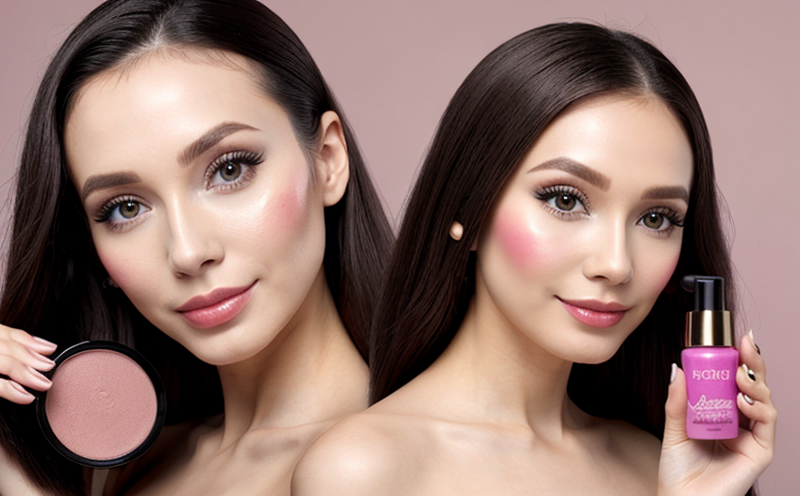
-
Cosmetic Product Testing-
Sustainability and Eco-Friendly Cosmetic Testing-
Certification for Vegan Cosmetic Products
We provide comprehensive solutions designed to help our clients mitigate risks, enhance performance, and excel in key areas such as quality, health & safety, environmental sustainability, and social responsibility.
Discover
For many years, our organization has been operating successfully, boasting modern laboratories that meet international standards. These laboratories are equipped with the latest technology devices and equipment, and we have built a strong team of experienced and trained personnel to operate them.
DiscoverWelcome to Eurolab, your partner in pioneering solutions that encompass every facet of life. We are committed to delivering comprehensive Assurance, Testing, Inspection, and Certification services, empowering our global clientele with the ultimate confidence in their products and processes.
Discover
-
Cosmetic Product Testing-
Sustainability and Eco-Friendly Cosmetic Testing-
Certification for Vegan Cosmetic ProductsCertification for Vegan Cosmetic Products: A Comprehensive Guide
The demand for vegan cosmetic products has been on the rise in recent years, driven by consumer desire for cruelty-free, sustainable, and environmentally friendly beauty options. As a result, manufacturers of vegan cosmetics are now seeking certification to ensure compliance with industry standards and regulations. In this article, we will explore the importance of certification for vegan cosmetic products, the benefits it provides, and the various organizations that offer certification.
Why is Certification Important for Vegan Cosmetic Products?
Certification for vegan cosmetic products serves several purposes:
Consumer Trust: Certification helps to build trust with consumers who are seeking out cruelty-free and sustainable beauty options. It ensures that the product meets certain standards and regulations, giving consumers confidence in their purchasing decisions.
Compliance with Regulations: Certification helps manufacturers comply with industry regulations and laws related to animal testing and labeling. This reduces the risk of non-compliance fines and reputational damage.
Increased Sales: Certified vegan cosmetic products can command a premium price due to the perceived value associated with the certification.
Differentiation from Competitors: Certification sets certified products apart from competitors, making them more attractive to consumers who prioritize sustainability and ethics.
The Benefits of Certification for Manufacturers
Certification for vegan cosmetic products offers several benefits for manufacturers:
Cost Savings: While obtaining certification may incur upfront costs, it can lead to cost savings in the long run by reducing the need for multiple certifications or compliance programs.
Increased Efficiency: Streamlined processes and documentation requirements make it easier for manufacturers to comply with regulations and standards.
Access to New Markets: Certification opens up new markets and distribution channels, particularly in countries where certification is mandatory.
Enhanced Reputation: Certification demonstrates a manufacturers commitment to sustainability, ethics, and consumer welfare.
Organizations that Offer Certification
Several organizations offer certification for vegan cosmetic products, including:

Construction and Engineering Compliance
Construction and Engineering Compliance: Ensuring Safety, Quality, and Regulatory Adherence In the ...

Automotive Compliance and Certification
Automotive Compliance and Certification: Ensuring Safety and Efficiency The automotive industry is ...

Chemical Safety and Certification
Chemical safety and certification are critical in ensuring the safe management of products and proce...

MDR Testing and Compliance
MDR Testing and Compliance: A Comprehensive Guide The Medical Device Regulation (MDR) is a comprehe...

Railway Industry Compliance
Railway Industry Compliance: Ensuring Safety and Efficiency The railway industry is a critical comp...

Pharmaceutical Compliance
Pharmaceutical compliance refers to the adherence of pharmaceutical companies and organizations to l...

Fire Safety and Prevention Standards
Fire Safety and Prevention Standards: Protecting Lives and Property Fire safety and prevention stan...

Transportation and Logistics Certification
Transportation and Logistics Certification: A Comprehensive Guide The transportation and logistics ...

Renewable Energy Testing and Standards
Renewable Energy Testing and Standards: Ensuring a Sustainable Future The world is rapidly transiti...

NEBS and Telecommunication Standards
Network Equipment Building System (NEBS) and Telecommunication Standards The Network Equipment Bu...

Industrial Equipment Certification
Industrial equipment certification is a critical process that ensures industrial equipment meets spe...

Healthcare and Medical Devices
The Evolution of Healthcare and Medical Devices: Trends, Innovations, and Challenges The healthcare...

Agricultural Equipment Certification
Agricultural equipment certification is a process that ensures agricultural machinery meets specific...

Consumer Product Safety
Consumer Product Safety: Protecting Consumers from Harmful Products As a consumer, you have the rig...

Military Equipment Standards
Military Equipment Standards: Ensuring Effectiveness and Safety The use of military equipment is a ...

Energy and Sustainability Standards
In today’s rapidly evolving world, businesses face increasing pressure to meet global energy a...

Lighting and Optical Device Testing
Lighting and Optical Device Testing: Ensuring Performance and Safety Lighting and optical devices a...

Aviation and Aerospace Testing
Aviation and Aerospace Testing: Ensuring Safety and Efficiency The aviation and aerospace industr...

Food Safety and Testing
Food Safety and Testing: Ensuring the Quality of Our Food As consumers, we expect our food to be sa...

Pressure Vessels and Installations Testing
Pressure Vessels and Installations Testing Pressure vessels are a critical component of various ind...

Environmental Simulation Testing
Environmental Simulation Testing: A Comprehensive Guide In todays world, where technology is rapidl...

Electromechanical Safety Certification
Electromechanical Safety Certification: Ensuring Compliance and Protecting Lives In todays intercon...

Hospitality and Tourism Certification
Hospitality and Tourism Certification: Unlocking Opportunities in the Industry The hospitality and ...

Cosmetic Product Testing
The Complex World of Cosmetic Product Testing The cosmetics industry is a multi-billion-dollar ma...

Battery Testing and Safety
Battery Testing and Safety: A Comprehensive Guide As technology continues to advance, battery-power...

Trade and Government Regulations
Trade and government regulations play a vital role in shaping the global economy. These regulations ...

Environmental Impact Assessment
Environmental Impact Assessment: A Comprehensive Guide Environmental Impact Assessment (EIA) is a c...

Product and Retail Standards
Product and Retail Standards: Ensuring Quality and Safety for Consumers In todays competitive marke...

IT and Data Center Certification
IT and Data Center Certification: Understanding the Importance and Benefits The field of Informatio...

Electrical and Electromagnetic Testing
Electrical and Electromagnetic Testing: A Comprehensive Guide Introduction Electrical and electrom...